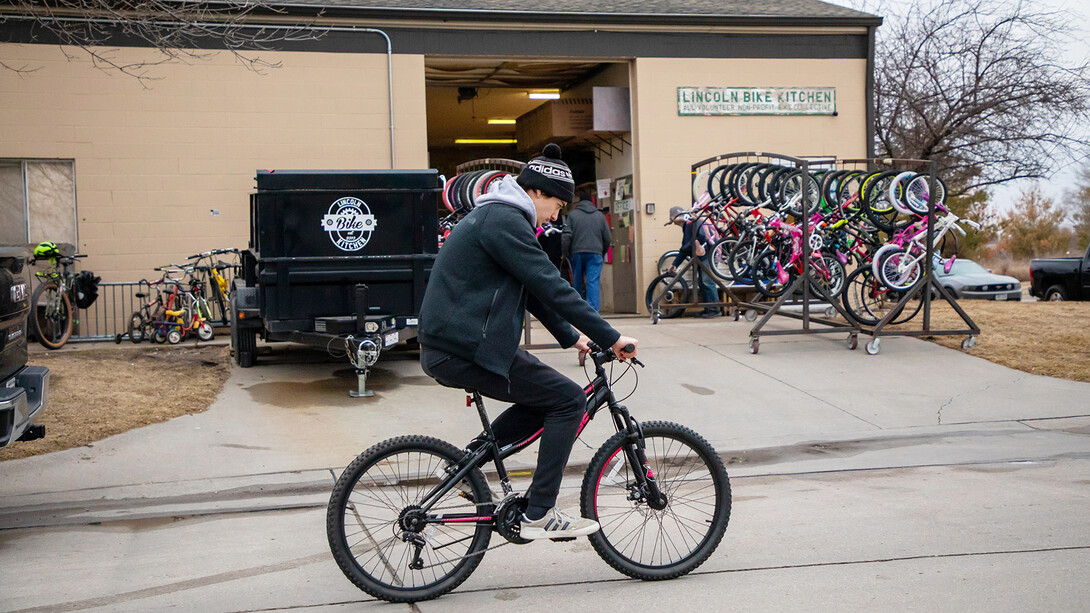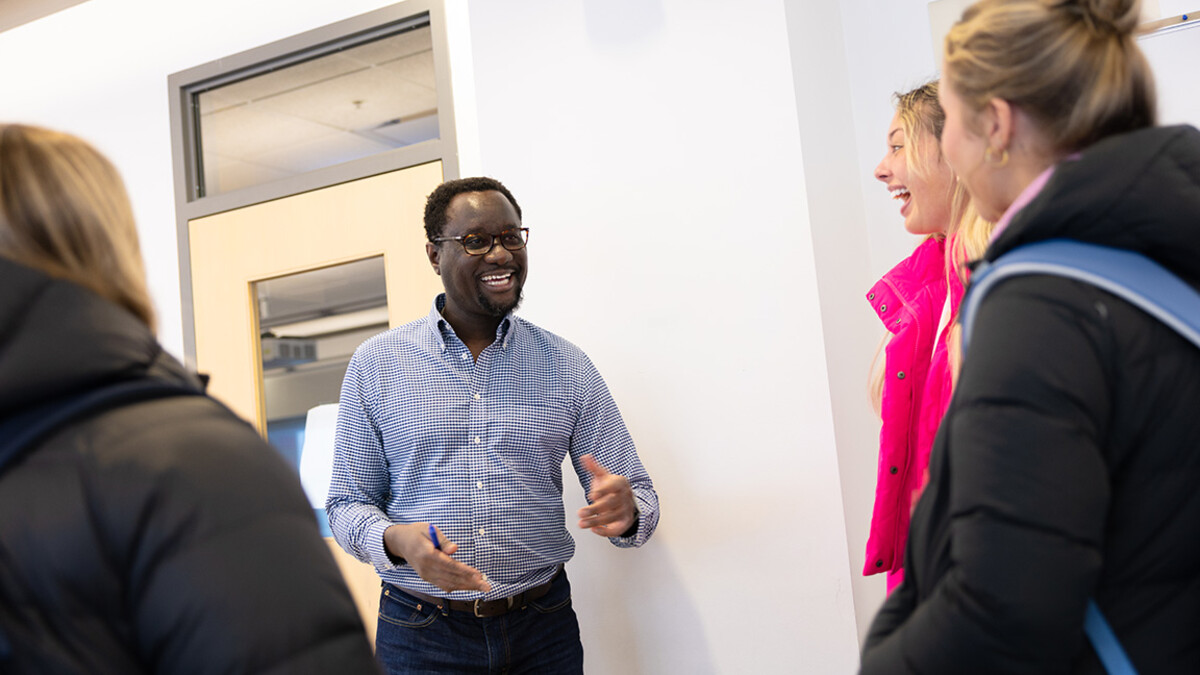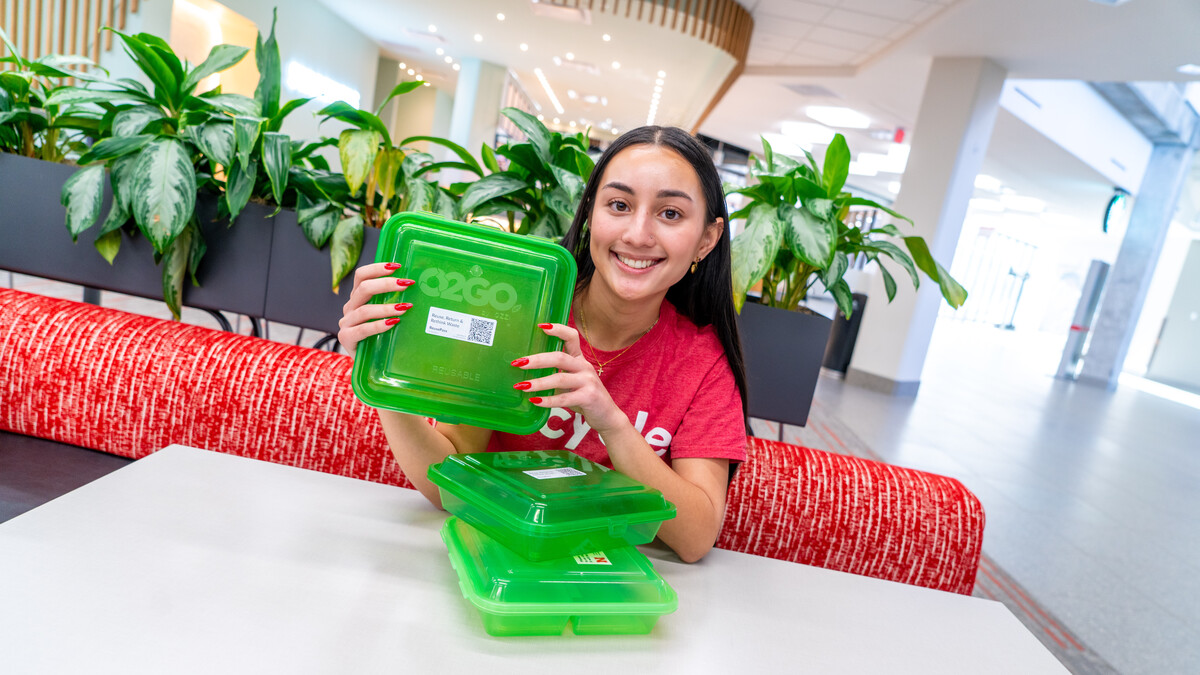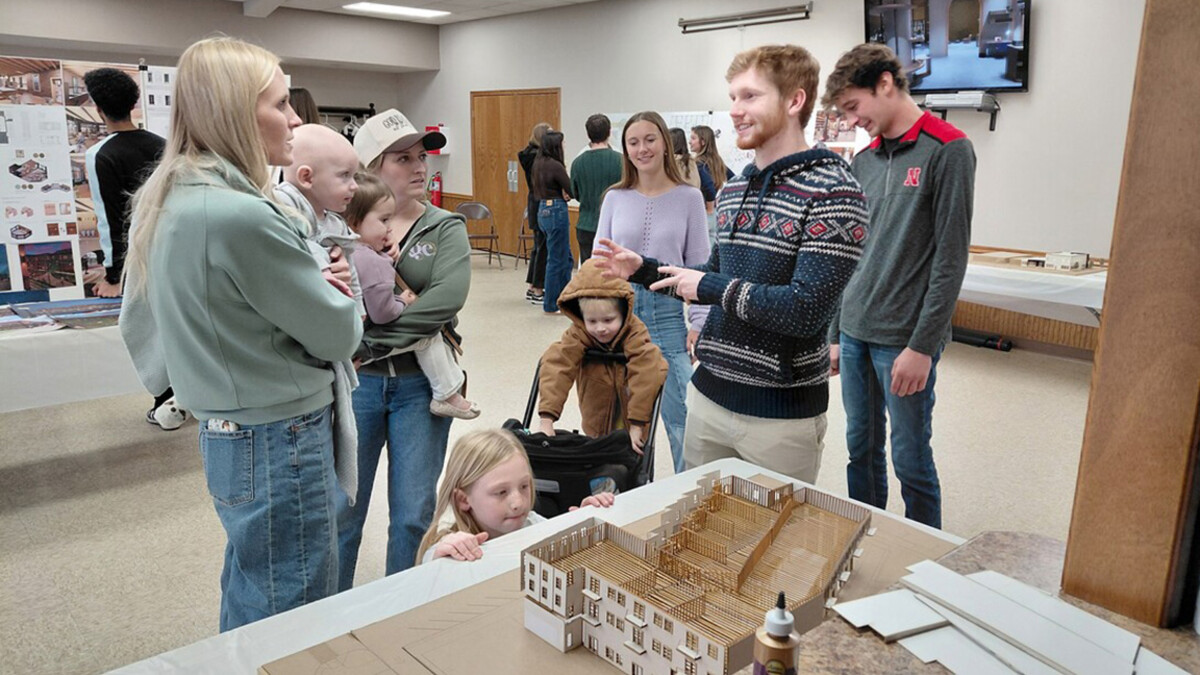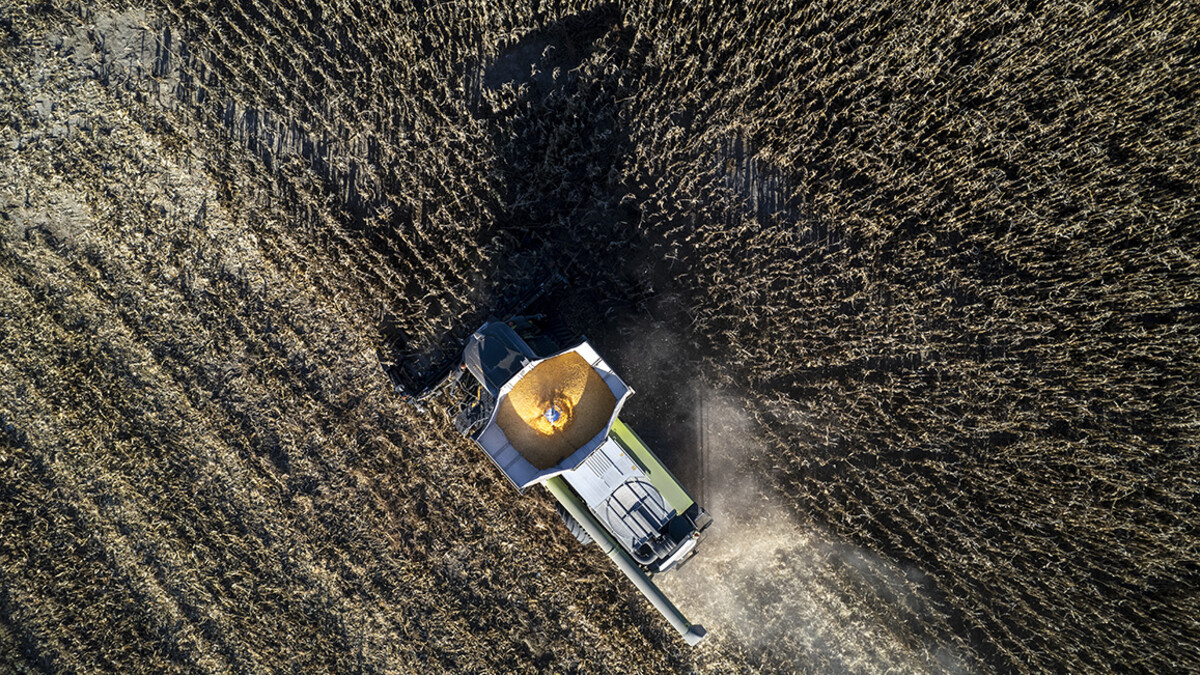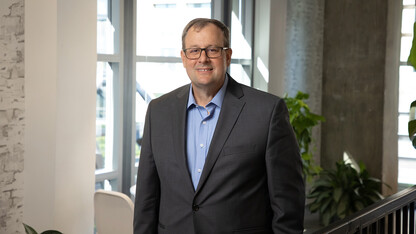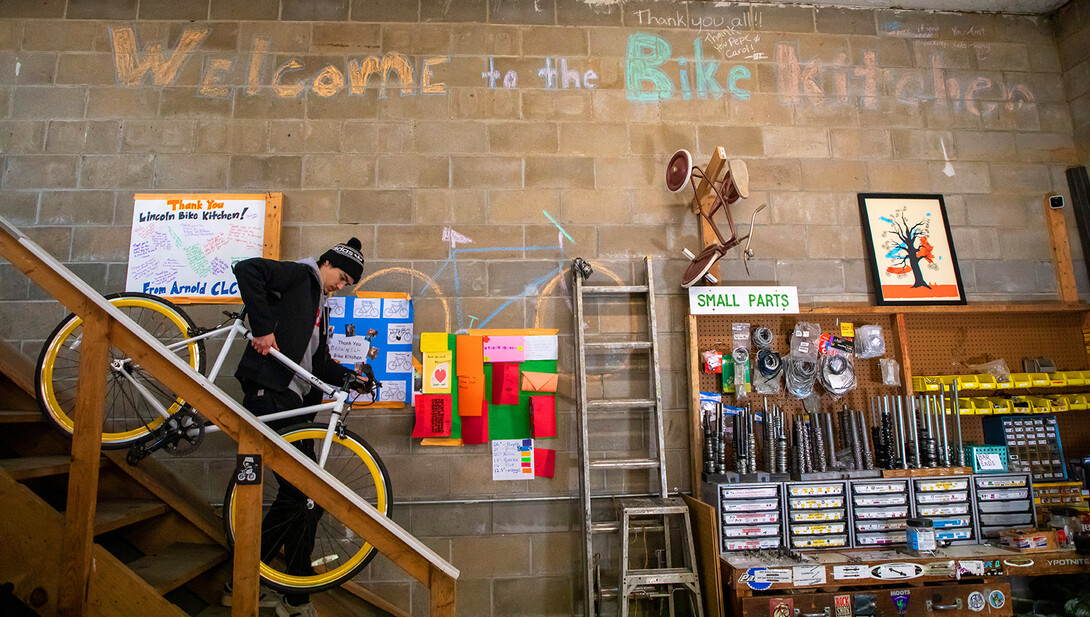
Nebraska Engineering students are helping smiles roll out the door at the Lincoln Bike Kitchen.
As part of a service learning focus, students from the University of Nebraska–Lincoln’s College of Engineering are working alongside other volunteers at the Bike Kitchen, repairing donated bicycles that become free “new” rides for area youth and adults in need.
“I never had a bike as a kid and this is totally something I wish existed back then,” said Alejandro Marquez, a first-year mechanical engineering major from Omaha. “Volunteering with the Bike Kitchen is an incredible opportunity to use my skills as an engineer, work alongside and learn from others, and give back to the community at large.”
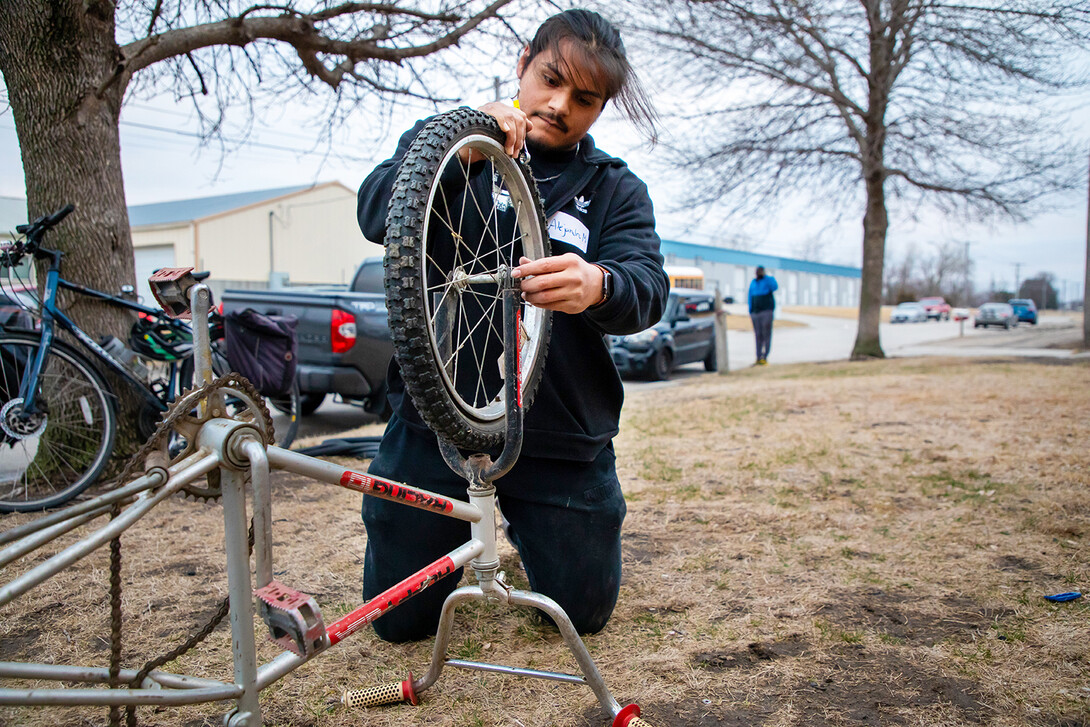
The volunteer work is an extension of Nebraska U’s “Interpersonal Skills for Engineering Leaders” (Engineering 100) course. Taught on Nebraska Engineering campuses in Lincoln and Omaha by Stu Bernstein, associate professor in the Durham School of Architectural Engineering and Construction, the course builds students’ communication and leadership skills. Alongside classroom discussions and industry explorations, students in the course complete 20 hours of service learning in an area of their choice. The students are encouraged to find a project that builds both their technical and interpersonal abilities.
“The Bike Kitchen happens to be a favorite because our students like to work their hands on mechanical things,” Bernstein said. “But it ends up being much more than just how to repair a tire or oil a chain. They work directly with other volunteers, listening and learning from them. And, they also have to deal with customers, helping match them to a bike.”
In his third week volunteering at the Bike Kitchen, Marquez said the key to success in each project has been listening.
“You can’t assume you know what needs to be done,” Marquez said. “Listening as you work is key, which has been hard for me as I sometimes can get hyper focused on a project and not pay attention to anything around me.
“That ability to listen and work as a team are things I’m really trying to hone while I’m here at the Bike Kitchen.”
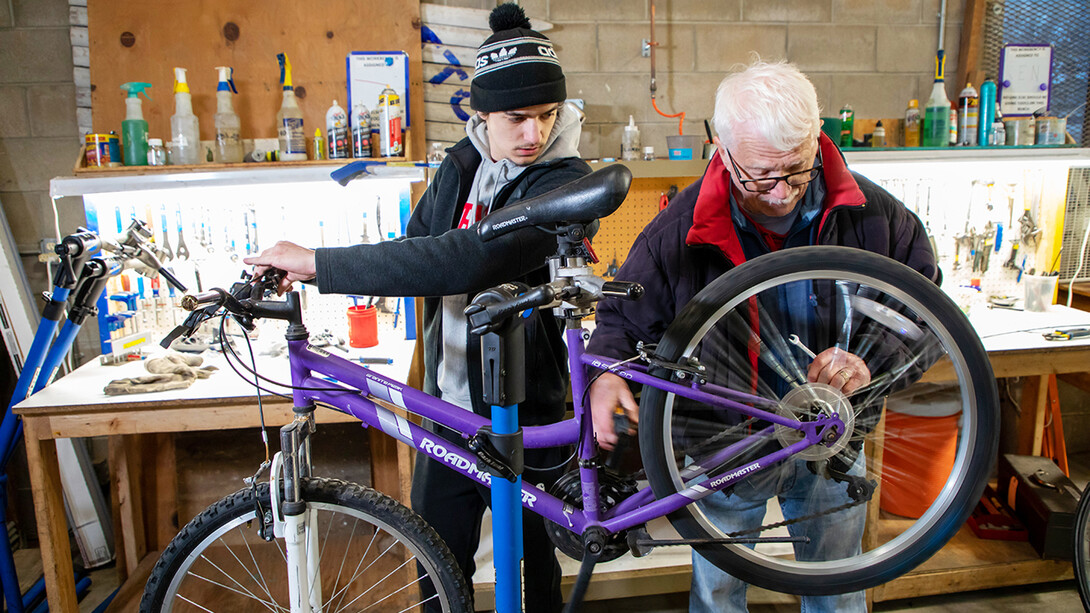
And the extra hands are appreciated by Bike Kitchen organizers, who have set a goal of distributing more than 1,000 rides to community members this year.
“We love having the engineering students here working with us,” said Bob Von Kaenel, president of the Bike Kitchen. “They’re pretty good mechanics coming in and they love to learn. It’s also great to have some younger guys here to talk with — they give us a good energy boost.”
The Engineering 100 course was added some seven years ago after ongoing discussions with engineering professionals.
“For years, our industry advisers told us that Nebraska graduates were extremely competent in their chosen fields, but that they lacked social skills,” Bernstein said. “To close that gap, we developed this course as a way to help our students become more complete people.”
That goal also mirrors Nebraska Engineering’s Complete Engineering program — which uses six core competencies to develop graduates who are proficient in technical, professional and personal skills.
“Our graduates understand that being a successful engineer is more than being proficient at dealing with numbers or solving equations,” Bernstein said. “It’s about being able to listen, communicate with others, work as a team and, whenever possible giving back to the community.
“All of those are lessons Nebraska Engineering students learn through unique opportunities like volunteering at the Lincoln Bike Kitchen.”
